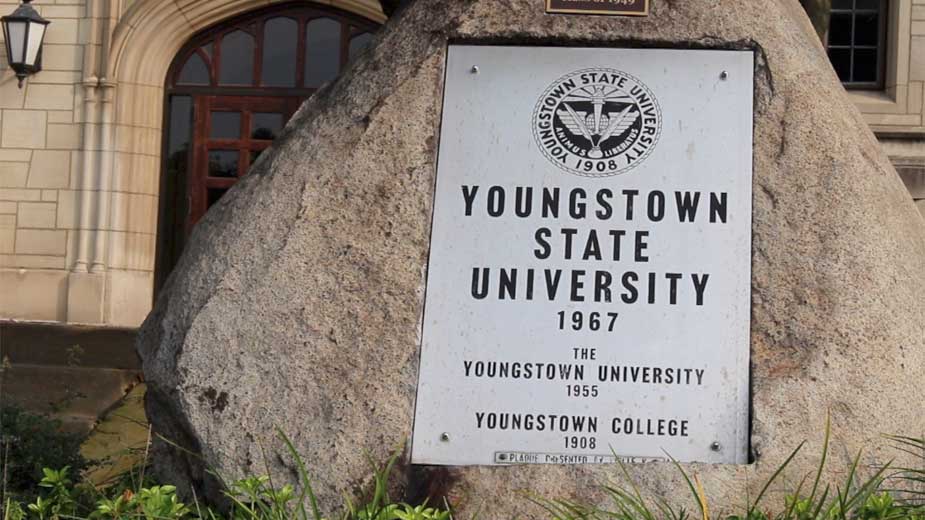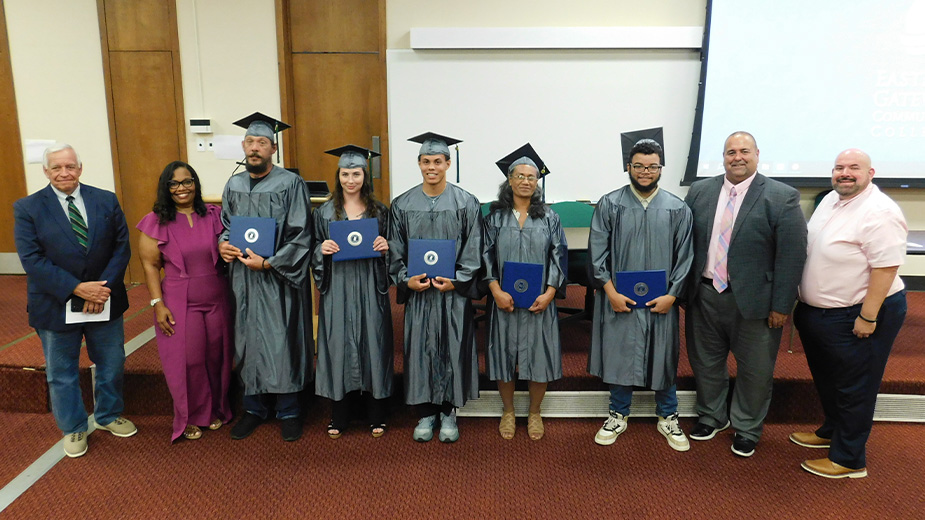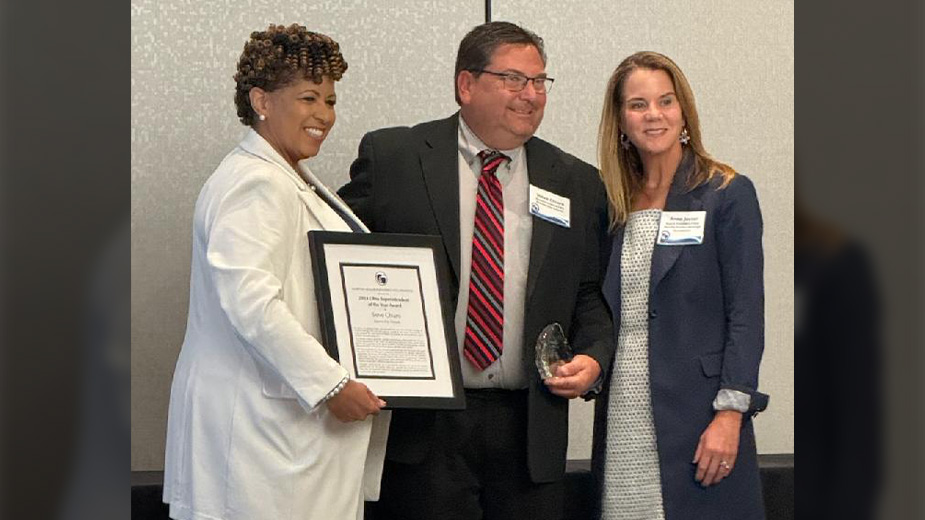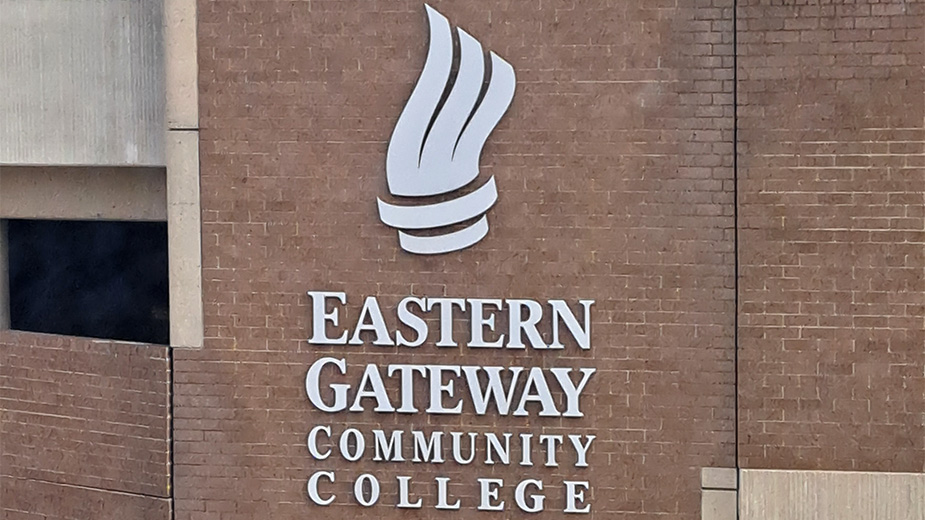YSU Trustees Reject Fact-Finder Report, Negotiations Begin Wednesday
Updated 7:20 p.m. with statement from YSU-OEA
YOUNGSTOWN, Ohio – The Youngstown State University Board of Trustees has voted to reject the fact-finder’s report in the administration’s negotiations with the faculty union
The rejection – the lone dissenting vote was by Ted Roberts – sets the stage for negotiations with the YSU chapter of the Ohio Education Association to begin Wednesday, with a second session slated for Friday if needed. In an email sent Monday afternoon before the trustees’ meeting, the YSU-OEA said the union will hold a strike vote Friday and Saturday if necessary; if approved, the strike would begin Monday.
In its consent resolution rejecting the report, the trustees directed the university’s negotiating team “return to working toward resolution of the issues in an attempt to present the Board of Trustees with a tentative agreement.”
“Today’s meeting of the board focused exclusively on the negotiations with our faculty and staff unions. While there remains significant work on both contracts, we remain optimistic that both can be resolved in a fair and equitable manner and without disruption to the semester,” said trustee chairwoman Dr. Anita Hackstedde during the meeting. “Let me also remind everyone that the board has the responsibility for the financial integrity of the university and from this perspective, our view comes from long-term sustainability, academic vibrancy and the vitality of the region.”
“While we may disagree with our faculty colleagues on the report, we do believe there is plenty of room for compromise and agreement,” she continued.
YSU President Jim Tressel said the board rejected the report for two reasons: the proposed pay increases for faculty and “unclear, ambiguous and lack of significant analysis or explanation” of some recommendations.
“The pandemic’s impact on the fiscal budget has not been as severe as we initially projected,” Tressel said. “Our state funding was cut by $1.4 million and our tuition revenue fell by over $3 million. The financial impact of the report, which recommends a 6% pay increase, is significant, amounting to $4.2 million over three years.”
In a statement issued after the meeting, the union said it was “troubled” by the trustees’ rejection of the fact-finder’s report.
“We hope to go back to the table to negotiate a fair and reasonable contract as quickly and equitably as possible so we can all return our full focus to our students,” YSU-OEA spokesman Mark Vopat said in the statement. “As Friday’s vote shows, YSU-OEA is confident in the findings of the report and we remain committed to supporting our members during this process, protecting long-standing provisions and processes in our existing YSU-OEA collective bargaining agreement and pushing back against unnecessary cuts.”
The fact-finder report, issued by Judge Betty Widgeon, was compiled after nine days of testimony from the university and the union, as well as the submission of financial and budget documents.
“Given the issues still in dispute, the arbitrator acknowledges that the parties may well be hard pressed to mutually accept all of the recommendations. Throughout the discussions in mediation and presentations during fact-finding, it became clear that there is entrenched distrust between the parties and that it has hampered their efforts to resolve their underlying interests and concerns,” Widgeon wrote in the report. “Beneath some of the distrust is a fundamental philosophical difference in the parties’ views of shared governance. This difference surfaced in their discussions on nearly every issue.”
The report, which includes 37 pages of recommendations, covers issues ranging from faculty pay and raises to health insurance coverage to department governance to student grievances. Widgeon’s recommendations largely call for maintaining the current language of the contract.
Among the recommendations are maintaining the current language on salary minima for faculty, a 2% raise in each year of the contract and keeping insurance coverage mostly the same.
The full report can be read HERE.
Since the advent of the coronavirus pandemic and the looming reduction in tuition and state dollars, Youngstown State has sought to reduce its budget. It was with that in mind that the university announced in June that it would reorganize university departments, a move that combined the Beeghly College of Education and the College of Liberal Arts and Social Science, rearranged academic programs to new colleges and moved 18 department heads back into classrooms with a pay decrease of roughly $17,000.
That move followed furloughs and pay cuts to other university employees.
“We have been distressed to see YSU’s administration announce sweeping changes, hastily and unilaterally conceived without the slightest consultation with the students, faculty, and staff whose work lives they will most profoundly affect, at a time when we are already working through unprecedented uncertainty,” said YSU-OEA President Steven Reale in a letter to the university June 3.
Following the union’s threat to strike over the summer, YSU President Jim Tressel said “we have great respect for our faculty, and their value to the university and our students is significant; however, we must meet the challenges before us by working in unison to keep our students and their continued education at the forefront.
“The administration, the board of trustees and the community are truly grateful that our nonfaculty staff employees have recognized the challenges facing the university and have made sacrifices to ensure that our mission can continue and that our students continue to have opportunities for success,” he continued.
More recently, the union has said it hopes for a “swift and equitable resolution” to the contract negotiations. On Oct. 1, the union filed a 10-day intent to strike notice, a procedural step in the negotiation process and the next day voted to approve the fact-finder’s report.
Copyright 2024 The Business Journal, Youngstown, Ohio.



